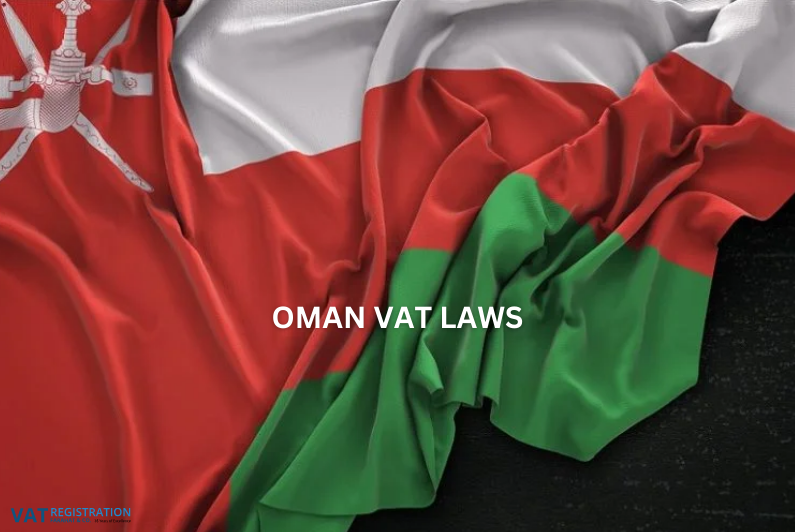As of April 2024, Oman continues to enforce the 5% VAT rate introduced in April 2021 under Royal Decree (No. 121) of 2020. Consistent with the GCC Unified Agreement, the standard rate applies to a broad range of goods and services, with specific exemptions and zero-ratings still in effect. By global standards, the standard rate of five percent is considered very low. Online VAT registration in Oman has just been launched and it is recommended to visit the website of the tax authority to complete the process.
Online Registration Remains Essential: Businesses must still register online via the Omani tax authority’s official website. This process is critical for compliance and to avoid penalties.
For hassle-free VAT Services in UAE? Click here to send an inquiry.
Transitional Phase for Oman VAT Registration
In the table below, you’ll find details of registration timelines, categories, and the applicable dates of registration as laid out in Royal Decree (No 121) of 2020 on VAT in Oman.
| Category | Timeline for Registration | Effective Registration Date |
|---|---|---|
| For a taxable person who has an annual supplies value of 1,000,000 OMR or is forecasted to exceed a million Omani Rials | Feb 1 2021 to Mar 15 2021 | Apr 16 2021 |
| For a taxable person with annual supplies value anywhere between 500,000 to a million OMR | Apr 1 2021 to May 31 2021 | Jul 1 2021 |
| For a taxable person whose value of annual supplies is between 250,000 to 499,999 Omani Rials | Jul 1 2021 to Aug 31 2021 | Oct 1 2021 |
| For a taxable person with annual supplies value of anywhere between 38,500 to 249,999 Omani Rials | Dec 1 2021 to Feb 28 2022 | Apr 1 2022 |
VAT Rates Under Oman VAT Law
Under the recently launched VAT legislation in Oman, the following are the three types of VAT rates:
Zero-rating
Zero-rating is subject to terms and conditions that are mentioned in the Oman Executive Regulations. Supplies that are considered zero-rated in Oman under the new VAT legislation are as follows:
- Supply of specified medical equipment and medicines
- Supply of certain consumable or food products that are specified by the decision of the Chairman
- Supply of investment platinum, silver, and gold
- Supplies of intra GCC or international transport of passengers and goods
- Supply of services with connection to transport of passengers and goods intra GCC or international
- Supply of a rescue plane or marine vehicle
- Supply of natural gas, derivatives of oil, and oil
- Supplies that are made outside of GCC countries that are in specified cases (subject to certain terms and conditions)
- Supply of products and services which are VAT exempt in Oman and are supplied to territories outside the GCC
Read also: How To Reduce VAT Penalties In UAE
VAT exempt
Exemption from VAT is subject to terms and conditions which are mentioned in Oman Executive Regulations. Supplies that are exempt from VAT in accordance to Oman VAT law are as follows:
- Healthcare services, including all related products and services
- Financial services
- Undeveloped land or bare land
- Educational services, including all related products and services
- Local passenger transport
- Resale of any residential property
- Rental property for residential purposes only
The VAT legislation in Oman also specifies certain goods imported abroad that are exempted from VAT, including personal luggage and returned goods.
Standard rating
All supplies of products and services within Omani jurisdiction, except the ones mentioned earlier, will be charged with a five percent standard VAT rate, subject to a place of supply as mentioned in Omani VAT law.
How Oman Businesses Should Prepare for VAT
The tax authority has issued guidance on preparing for VAT implementation in Oman. Businesses are encouraged to act early by forming a steering committee and a working group of specialists from various internal divisions. Key personnel should meet regularly to track preparation progress.
Businesses should familiarize themselves with all VAT laws and guidance from the tax authority, and seek clarification on any ambiguous areas as soon as possible.
Key steps for a smooth VAT implementation include:
- Developing a task map for VAT readiness
- Assessing the impact of VAT on pricing
- Conducting VAT awareness seminars for stakeholders and employees
- Implementing necessary changes to IT systems, documentation, record-keeping, and point of sale
- Seeking support from ERP specialists, lawyers, and tax advisers
- Identifying opportunities for optional aspects of Oman VAT law, such as bad debt relief and VAT grouping
If you want to speak to seasoned tax professionals, contact us here in VAT Registration UAE today!

